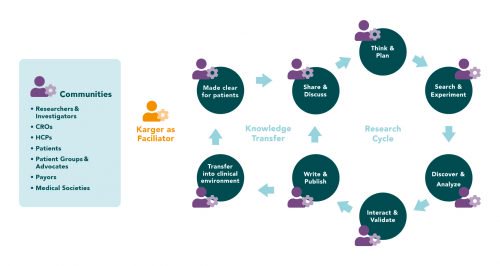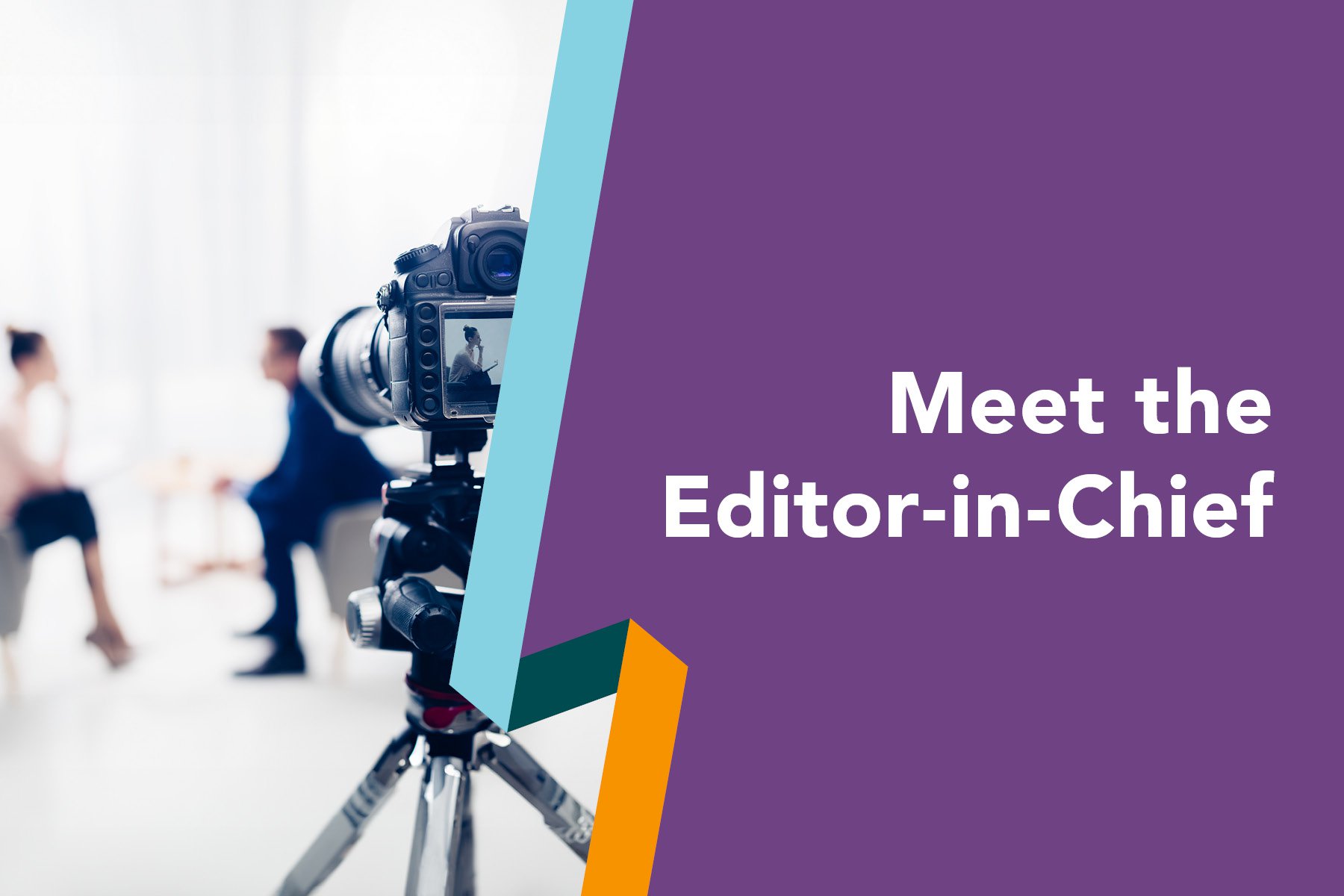If your audience is a community, its perspectives are often shaped by shared knowledge within that community. But what happens when knowledge is shared beyond that one community? In the health sciences, connecting across a range of communities allows the spread of information throughout a larger network, sparking new dialog with the potential to find and close knowledge gaps and lead to new discoveries.
Communities in the health sciences generate data in their own fields of expertise. When data is shared interactively, the information is enriched with additional context, which helps to advance scientific knowledge. Connecting multiple communities encourages the flow of information to and from these communities at different points and times along the research cycle, resulting in a more holistic understanding of a subject matter and aiding communities in distilling information for their own needs and audiences.
Information should be shared and added to, refined for a specific audience, and summarized for a general audience, thus becoming a flow of data to and from communities along the cycle of knowledge. Considering the increase in scientific data and the speed with which it is published, this poses a challenge. In H. Holden Thorp’s editorial in the recent issue of Science titled “It’s not as easy as it looks” he writes: “Moreover, scientists need to have some understanding of their audience to improve the chance of a true dialog. They may need to learn to listen and “read the room,” and prepare different approaches for different audiences.”
Dialog Facilitator
As a scientific and medical publisher, we can act as a connecting node in the health sciences network to facilitate dialog between communities, to offer support in identifying and closing knowledge gaps, and to aid in the editorial process based on the information needs of a target audience.

Communities increasingly seek dialog in order to get a bigger picture enriched by multiple perspectives and a deeper holistic understanding. The PwC “Future of Health” article describes the convergence of multiple industries, including communities in the health sciences, as follows: “In the past years, healthcare systems and the pharmaceutical industry have undergone tremendous changes given technological, regulatory and socioeconomic disruptions. Covid-19 has further intensified and catalyzed these changes in healthcare systems and healthcare delivery. Among others, regulators paved the way for more dynamic and faster decision-making, approved novel technologies including digital health solutions and created new reimbursement pathways. In parallel, medical and biological research has made breakthroughs with emerging technologies including in-silico protein folding prediction, novel cell therapies and other treatment platforms. With those trends materializing, borders between industries continue to blur. This convergence of healthcare, technology and retail and consumer industries will lead to what we call the LIFEcare system.”
Bridging Knowledge Gaps
This convergence produces a bigger picture with the potential to advance scientific knowledge, yet for this connection of communities to be successful, dialog is needed. We are not only a community within the network; we also leverage the relationships we foster to facilitate connections in order to spark thoughts, insights, and dialog within the health and science, “LIFEcare”, network.
Your audience may be part of this converged network and connecting them to other communities within the health sciences network is key to advancing scientific knowledge. Join us in exploring how to bridge knowledge gaps and better share scientific information with various stakeholder communities; some of our thoughts can be found in the below video with two case studies as examples.






Comments
Share your opinion with us and leave a comment below!